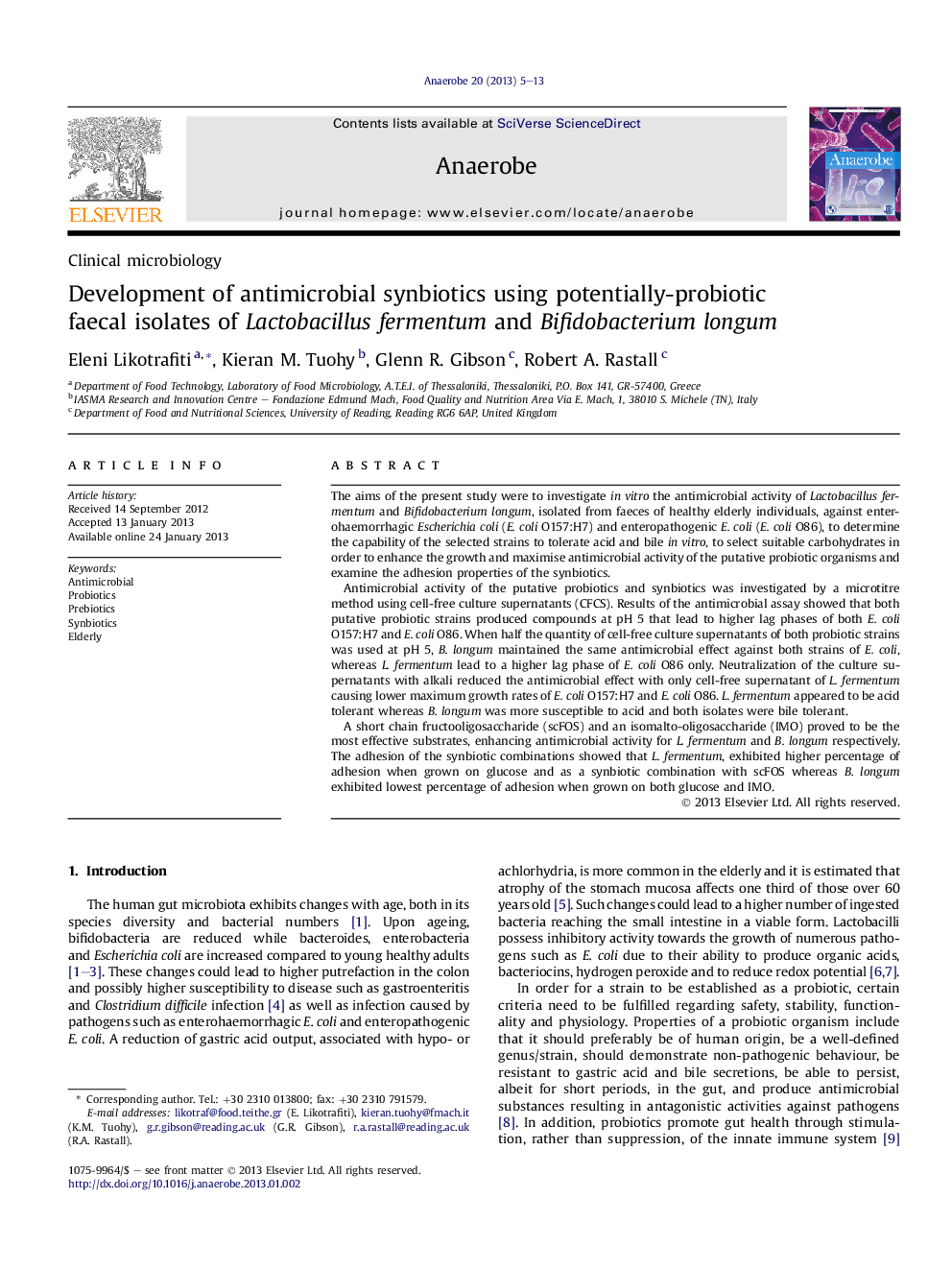| Article ID | Journal | Published Year | Pages | File Type |
|---|---|---|---|---|
| 3395244 | Anaerobe | 2013 | 9 Pages |
The aims of the present study were to investigate in vitro the antimicrobial activity of Lactobacillus fermentum and Bifidobacterium longum, isolated from faeces of healthy elderly individuals, against enterohaemorrhagic Escherichia coli (E. coli O157:H7) and enteropathogenic E. coli (E. coli O86), to determine the capability of the selected strains to tolerate acid and bile in vitro, to select suitable carbohydrates in order to enhance the growth and maximise antimicrobial activity of the putative probiotic organisms and examine the adhesion properties of the synbiotics.Antimicrobial activity of the putative probiotics and synbiotics was investigated by a microtitre method using cell-free culture supernatants (CFCS). Results of the antimicrobial assay showed that both putative probiotic strains produced compounds at pH 5 that lead to higher lag phases of both E. coli O157:H7 and E. coli O86. When half the quantity of cell-free culture supernatants of both probiotic strains was used at pH 5, B. longum maintained the same antimicrobial effect against both strains of E. coli, whereas L. fermentum lead to a higher lag phase of E. coli O86 only. Neutralization of the culture supernatants with alkali reduced the antimicrobial effect with only cell-free supernatant of L. fermentum causing lower maximum growth rates of E. coli O157:H7 and E. coli O86. L. fermentum appeared to be acid tolerant whereas B. longum was more susceptible to acid and both isolates were bile tolerant.A short chain fructooligosaccharide (scFOS) and an isomalto-oligosaccharide (IMO) proved to be the most effective substrates, enhancing antimicrobial activity for L. fermentum and B. longum respectively. The adhesion of the synbiotic combinations showed that L. fermentum, exhibited higher percentage of adhesion when grown on glucose and as a synbiotic combination with scFOS whereas B. longum exhibited lowest percentage of adhesion when grown on both glucose and IMO.
► L. fermentum and B. longum isolated from faecal samples of elderly. ► Both strains exhibited antimicrobial activity against E. coli. ► Both putative probiotic strains exhibited good acid and bile tolerance. ► Antimicrobial synbiotics of L. fermentum with scFOS and B. longum with IMO chosen. ► L. fermentum with scFOS exhibited good adhesion properties.
